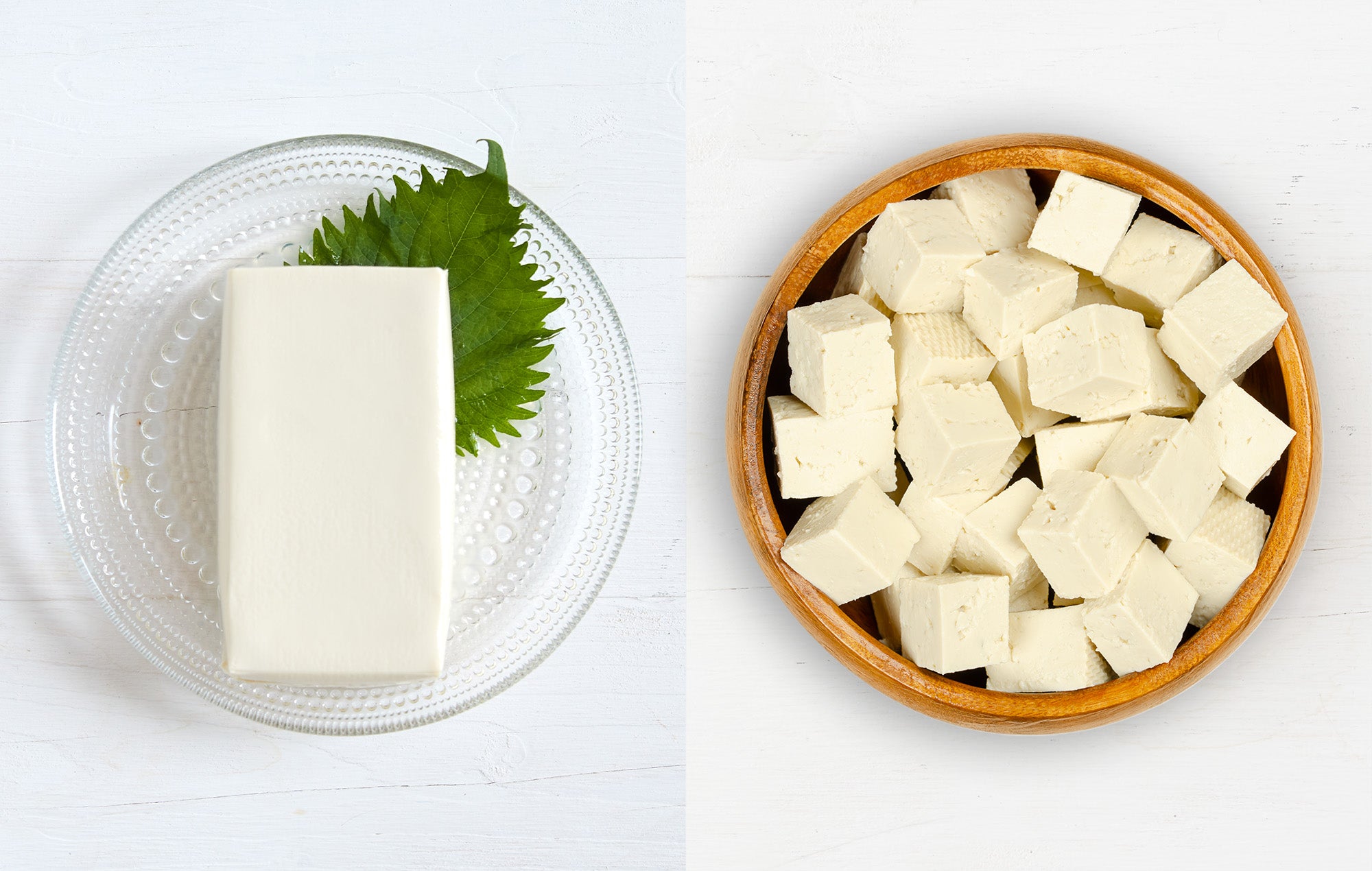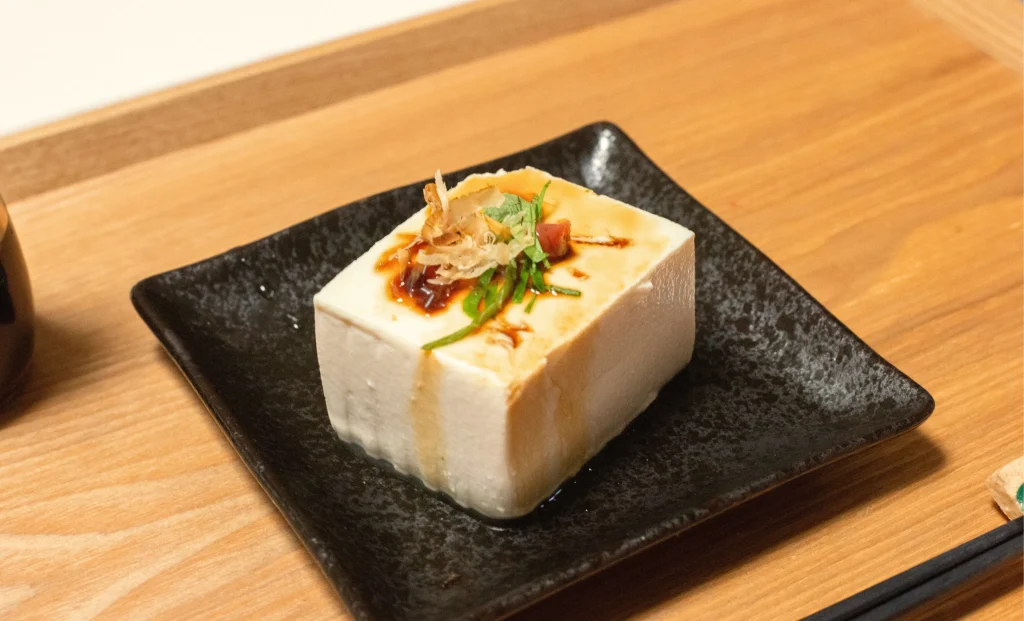Tofu has been a staple in Asian cuisines for centuries and is gaining popularity worldwide as a healthy plant-based protein option. This article explores Tofu Knowledge, highlighting its nutritional benefits, culinary uses, and how it can play an essential role in a balanced diet.
What is Tofu?

Its made by coagulate soy milk and pressing the resulting curds into solid blocks. It comes in various textures, including silken, soft, firm, and extra firm, making it suitable for a wide range of dishes.
Types of Tofu
- Silken Tofu: Smooth and creamy, ideal for smoothies, desserts, and soups.
- Soft Tofu: Slightly firmer than silken, great for soups and stir-fries.
- Firm Tofu: Dense and versatile, suitable for grilling, frying, and baking.
- Extra Firm Tofu: The densest variety, perfect for stir-frying and grilling.
Nutritional Profile of Tofu
Tofu is a nutrient-dense food that offers numerous health benefits:
- High in Protein: Tofu is an excellent source of plant-based protein, containing about 8 grams of protein per 100 grams.
- Low in Calories: It is relatively low in calories, making it a great option for those looking to manage their weight.
- Rich in Nutrients: Tofu is a good source of iron, calcium, magnesium, and various vitamins, including B vitamins.
- Contains Isoflavones: These compounds have antioxidant properties and may contribute to various health benefits.
Health Benefits of Tofu
1. Heart Health
Mechanism
Tofu is low in saturated fat and cholesterol-free, making it a heart-healthy protein source. The isoflavones in tofu may also help lower blood pressure and improve cholesterol levels.
Applications
- Dietary Inclusion: Replacing red meat with tofu can reduce the risk of heart disease.
- Heart-Healthy Recipes: Incorporate tofu into salads, stir-fries, and grain bowls for a nutritious boost.
2. Bone Health
Mechanism
Tofu is often fortified with calcium, which is essential for bone health. The magnesium and phosphorus in tofu also contribute to maintaining strong bones.
Applications
- Calcium-Rich Meals: Use tofu in dishes like stir-fried vegetables or soups to enhance calcium intake.
- Plant-Based Diets: Tofu is an excellent option for those on vegan or vegetarian diets to meet their calcium needs.
3. Weight Management
Mechanism
High in protein and low in calories, tofu can promote feelings of fullness and reduce overall calorie intake.
Applications
- Healthy Snacking: Use tofu in smoothies or as a base for dips to create satisfying snacks.
- Meal Prep: Incorporate tofu into meal prep to ensure balanced, nutritious meals throughout the week.
4. Hormonal Balance
Mechanism
The isoflavones in tofu can mimic estrogen in the body, which may help alleviate symptoms related to hormonal imbalances, such as menopause.
Applications
- Menopausal Support: Include tofu in the diet to help manage menopausal symptoms.
- Balanced Diet: Pair tofu with other hormone-balancing foods, such as whole grains and leafy greens.
5. Cancer Prevention
Mechanism
Some studies suggest that the isoflavones in tofu may have protective effects against certain types of cancer, particularly breast and prostate cancer.
Applications
- Incorporating Tofu: Include tofu regularly in your diet as part of a balanced approach to cancer prevention.
- Diverse Diet: Combine tofu with a variety of fruits, vegetables, and whole grains for optimal health benefits.
Culinary Uses of Tofu
Tofu’s versatility makes it suitable for a wide range of dishes:
1. Stir-Fries
Add cubed tofu to vegetable stir-fries for a protein boost and texture.
2. Soups and Stews
Incorporate tofu into miso soup or hearty stews for added nutrition.
3. Salads
Use marinated tofu in salads for a filling and nutritious meal.
4. Smoothies and Desserts
Blend silken tofu into smoothies or use it as a base for creamy desserts like mousse or puddings.
5. Grilled or Baked Dishes
Marinate firm or extra firm tofu and grill or bake it for a delicious main dish.
How to Choose and Store Tofu
1. Quality Matters
- Organic Options: Look for organic tofu to avoid genetically modified soybeans.
- Freshness: Check expiration dates and choose tofu that appears fresh and properly sealed.
2. Storage Tips
- Refrigeration: Keep tofu refrigerated and consume it within a few days after opening.
- Water Method: Store opened tofu submerged in water, changing the water daily to maintain freshness.
Potential Health Risks and Considerations
While tofu is generally safe for most people, consider the following:
- Soy Allergies: Individuals with soy allergies should avoid tofu and soy products.
- Thyroid Issues: Some studies suggest that excessive soy consumption may affect thyroid function in susceptible individuals. Moderation is key.
- Digestive Sensitivity: Some people may experience digestive discomfort from soy products. Start with small amounts if you’re new to tofu.
Conclusion
Tofu is a nutritious and versatile plant-based protein that can play a significant role in a healthy diet. Understanding Tofu Knowledge allows you to appreciate its health benefits and culinary potential.
Incorporating tofu into your meals can enhance your nutritional intake while providing a delicious alternative to meat. Embrace the many uses of tofu to enrich your diet and support your health today!
Read Also About Watermelon is a refreshing summer fruit that is not only delicious but also packed with hydration and essential nutrients. Composed of about 90% water, watermelon is an excellent choice for staying hydrated, especially on hot days.


